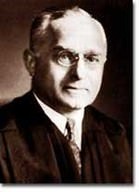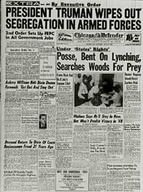2.6: Limited Government and the Rule of Law
- Page ID
- 2004
\( \newcommand{\vecs}[1]{\overset { \scriptstyle \rightharpoonup} {\mathbf{#1}} } \)
\( \newcommand{\vecd}[1]{\overset{-\!-\!\rightharpoonup}{\vphantom{a}\smash {#1}}} \)
\( \newcommand{\id}{\mathrm{id}}\) \( \newcommand{\Span}{\mathrm{span}}\)
( \newcommand{\kernel}{\mathrm{null}\,}\) \( \newcommand{\range}{\mathrm{range}\,}\)
\( \newcommand{\RealPart}{\mathrm{Re}}\) \( \newcommand{\ImaginaryPart}{\mathrm{Im}}\)
\( \newcommand{\Argument}{\mathrm{Arg}}\) \( \newcommand{\norm}[1]{\| #1 \|}\)
\( \newcommand{\inner}[2]{\langle #1, #2 \rangle}\)
\( \newcommand{\Span}{\mathrm{span}}\)
\( \newcommand{\id}{\mathrm{id}}\)
\( \newcommand{\Span}{\mathrm{span}}\)
\( \newcommand{\kernel}{\mathrm{null}\,}\)
\( \newcommand{\range}{\mathrm{range}\,}\)
\( \newcommand{\RealPart}{\mathrm{Re}}\)
\( \newcommand{\ImaginaryPart}{\mathrm{Im}}\)
\( \newcommand{\Argument}{\mathrm{Arg}}\)
\( \newcommand{\norm}[1]{\| #1 \|}\)
\( \newcommand{\inner}[2]{\langle #1, #2 \rangle}\)
\( \newcommand{\Span}{\mathrm{span}}\) \( \newcommand{\AA}{\unicode[.8,0]{x212B}}\)
\( \newcommand{\vectorA}[1]{\vec{#1}} % arrow\)
\( \newcommand{\vectorAt}[1]{\vec{\text{#1}}} % arrow\)
\( \newcommand{\vectorB}[1]{\overset { \scriptstyle \rightharpoonup} {\mathbf{#1}} } \)
\( \newcommand{\vectorC}[1]{\textbf{#1}} \)
\( \newcommand{\vectorD}[1]{\overrightarrow{#1}} \)
\( \newcommand{\vectorDt}[1]{\overrightarrow{\text{#1}}} \)
\( \newcommand{\vectE}[1]{\overset{-\!-\!\rightharpoonup}{\vphantom{a}\smash{\mathbf {#1}}}} \)
\( \newcommand{\vecs}[1]{\overset { \scriptstyle \rightharpoonup} {\mathbf{#1}} } \)
\( \newcommand{\vecd}[1]{\overset{-\!-\!\rightharpoonup}{\vphantom{a}\smash {#1}}} \)
\(\newcommand{\avec}{\mathbf a}\) \(\newcommand{\bvec}{\mathbf b}\) \(\newcommand{\cvec}{\mathbf c}\) \(\newcommand{\dvec}{\mathbf d}\) \(\newcommand{\dtil}{\widetilde{\mathbf d}}\) \(\newcommand{\evec}{\mathbf e}\) \(\newcommand{\fvec}{\mathbf f}\) \(\newcommand{\nvec}{\mathbf n}\) \(\newcommand{\pvec}{\mathbf p}\) \(\newcommand{\qvec}{\mathbf q}\) \(\newcommand{\svec}{\mathbf s}\) \(\newcommand{\tvec}{\mathbf t}\) \(\newcommand{\uvec}{\mathbf u}\) \(\newcommand{\vvec}{\mathbf v}\) \(\newcommand{\wvec}{\mathbf w}\) \(\newcommand{\xvec}{\mathbf x}\) \(\newcommand{\yvec}{\mathbf y}\) \(\newcommand{\zvec}{\mathbf z}\) \(\newcommand{\rvec}{\mathbf r}\) \(\newcommand{\mvec}{\mathbf m}\) \(\newcommand{\zerovec}{\mathbf 0}\) \(\newcommand{\onevec}{\mathbf 1}\) \(\newcommand{\real}{\mathbb R}\) \(\newcommand{\twovec}[2]{\left[\begin{array}{r}#1 \\ #2 \end{array}\right]}\) \(\newcommand{\ctwovec}[2]{\left[\begin{array}{c}#1 \\ #2 \end{array}\right]}\) \(\newcommand{\threevec}[3]{\left[\begin{array}{r}#1 \\ #2 \\ #3 \end{array}\right]}\) \(\newcommand{\cthreevec}[3]{\left[\begin{array}{c}#1 \\ #2 \\ #3 \end{array}\right]}\) \(\newcommand{\fourvec}[4]{\left[\begin{array}{r}#1 \\ #2 \\ #3 \\ #4 \end{array}\right]}\) \(\newcommand{\cfourvec}[4]{\left[\begin{array}{c}#1 \\ #2 \\ #3 \\ #4 \end{array}\right]}\) \(\newcommand{\fivevec}[5]{\left[\begin{array}{r}#1 \\ #2 \\ #3 \\ #4 \\ #5 \\ \end{array}\right]}\) \(\newcommand{\cfivevec}[5]{\left[\begin{array}{c}#1 \\ #2 \\ #3 \\ #4 \\ #5 \\ \end{array}\right]}\) \(\newcommand{\mattwo}[4]{\left[\begin{array}{rr}#1 \amp #2 \\ #3 \amp #4 \\ \end{array}\right]}\) \(\newcommand{\laspan}[1]{\text{Span}\{#1\}}\) \(\newcommand{\bcal}{\cal B}\) \(\newcommand{\ccal}{\cal C}\) \(\newcommand{\scal}{\cal S}\) \(\newcommand{\wcal}{\cal W}\) \(\newcommand{\ecal}{\cal E}\) \(\newcommand{\coords}[2]{\left\{#1\right\}_{#2}}\) \(\newcommand{\gray}[1]{\color{gray}{#1}}\) \(\newcommand{\lgray}[1]{\color{lightgray}{#1}}\) \(\newcommand{\rank}{\operatorname{rank}}\) \(\newcommand{\row}{\text{Row}}\) \(\newcommand{\col}{\text{Col}}\) \(\renewcommand{\row}{\text{Row}}\) \(\newcommand{\nul}{\text{Nul}}\) \(\newcommand{\var}{\text{Var}}\) \(\newcommand{\corr}{\text{corr}}\) \(\newcommand{\len}[1]{\left|#1\right|}\) \(\newcommand{\bbar}{\overline{\bvec}}\) \(\newcommand{\bhat}{\widehat{\bvec}}\) \(\newcommand{\bperp}{\bvec^\perp}\) \(\newcommand{\xhat}{\widehat{\xvec}}\) \(\newcommand{\vhat}{\widehat{\vvec}}\) \(\newcommand{\uhat}{\widehat{\uvec}}\) \(\newcommand{\what}{\widehat{\wvec}}\) \(\newcommand{\Sighat}{\widehat{\Sigma}}\) \(\newcommand{\lt}{<}\) \(\newcommand{\gt}{>}\) \(\newcommand{\amp}{&}\) \(\definecolor{fillinmathshade}{gray}{0.9}\)
"It is a fair summary of constitutional history that the landmarks of our liberties have often been forged in cases involving not very nice people." -SupremeCourt Justice Felix Frankfurter
Background
Protection of civil liberties and civil rights is perhaps the most fundamental political value in American society. Yet, as former Justice Frankfurter explained in the quote above, the people who test liberties and rights in our courts are not always ideal citizens. Consider some of these examples:
- A pickax murderer on death row found God and asked for clemency.
- A publisher of magazines, books, and photos convicted for sending obscene materials through the United States mail.
- A convict whose electrocution was botched when 2,000 volts of electricity rushed into his body, causing flames to leap from his head.
- A university student criminally charged for writing and publishing on the internet about torturing and murdering women.
Each of these people made sensational headline news as the center of one of many national civil liberties disputes in the late 20th century. They became involved in the legal process because of behavior that violated a law, and almost certainly, none of them intended to become famous. More important than the headlines they made, however, is the role they played in establishing important principles that define the many civil liberties and civil rights that Americans enjoy today.
Liberties or Rights?
What is the difference between a liberty and a right? Both words appear in the Declaration of Independence and the Bill of Rights. The distinction between the two has always been blurred, and today the concepts are often used interchangeably. However, they do refer to different kinds of guaranteed protections.
Civil liberties are protections against government actions. For example, the First Amendment of the Bill of Rights guarantees citizens the right to practice whatever religion they please. Government, then, cannot interfere in an individual's freedom of worship. Amendment I gives the individual "liberty" from the actions of the government.
Civil rights, in contrast, refer to positive actions of government should take to create equal conditions for all Americans. The term "civil rights" is often associated with the protection of minority groups, such as African Americans, Hispanics, and women. The government counterbalances the "majority rule" tendency in a democracy that often finds minorities out voted.
Right v. Right

Most Americans think of civil rights and liberties as principles that protect freedoms all the time. However, the truth is that rights listed in the Constitution and the Bill of Rights are usually competing rights. Most civil liberties and rights court cases involve the plaintiff's right vs. another right that the defendant claims has been violated.
For example, in 1971, the New York Times published the "Pentagon Papers" that revealed some negative actions of the government during the Vietnam War. The government sued the newspaper, claiming that the reports endangered national security. The New York Times countered with the argument that the public had the right to know and that its freedom of the press should be upheld. So, the situation was national security v. freedom of the press. A tough call, but the Court chose to uphold the rights of the press.
The Bill of Rights and the Fourteenth Amendment
The overwhelming majority of court decisions that define American civil liberties are based on the Bill of Rights, the first ten amendments added to the Constitution in 1791. Civil liberties protected in the Bill of Rights may be divided into two broad areas: freedoms and rights guaranteed in the First Amendment (religion, speech, press, assembly, and petition) and liberties and rights associated with crime and due process. Civil rights are also protected by the 14th Amendment, which protects against the violation of rights and liberties by the state governments.
Section 1: All persons born or naturalized in the United States, and subject to the jurisdiction thereof, are citizens of the United States and of the state wherein they reside. No state shall make or enforce any law which shall abridge the privileges or immunities of citizens of the United States; nor shall any state deprive any person of life, liberty, or property, without due process of law; nor deny to any person within its jurisdiction the equal protection of the laws.
Section 2: Representatives shall be apportioned among the several states according to their respective numbers, counting the whole number of persons in each state, excluding Indians not taxed. But when the right to vote at any election for the choice of electors for President and Vice President of the United States, Representatives in Congress, the executive and judicial officers of a state, or the members of the legislature thereof, is denied to any of the male inhabitants of such state, being twenty-one years of age [Changed by the 26th Amendment], and citizens of the United States, or in any way abridged, except for participation in rebellion, or other crime, the basis of representation therein shall be reduced in the proportion which the number of such male citizens shall bear to the whole number of male citizens twenty-one years of age in such state.
Section 3: All person shall be a Senator or Representative in Congress, or elector of President and Vice President, or hold any office, civil or military, under the United States, or under any state, who, having previously taken an oath, as a member of Congress, or as an officer of the United States, or as a member of any state legislature, or as an executive or judicial officer of any state, to support the Constitution of the United States, shall have engaged in insurrection or rebellion against the same, or given aid or comfort to the enemies thereof. But Congress may by a vote of two-thirds of each House, remove such disability.
Section 4: The validity of the public debt of the United States, authorized by law, including debts incurred for payment of pensions and bounties for services in suppressing insurrection or rebellion, shall not be questioned. But neither the United States nor any state shall assume or pay any debt or obligation incurred in aid of insurrection or rebellion against the United States, or any claim for the loss or emancipation of any slave; but all such debts, obligations, and claims shall be held illegal and void.
Section 5: The Congress shall have the power to enforce, by appropriate legislation, the provisions of this article.
Protection of civil liberties and civil rights is basic to American political values, but the process is far from easy. Protecting one person's right may involve violating those of another. How far should the government go to take "positive action" to protect minorities? The answers often come from individuals who brush most closely with the law, whose cases help to continually redefine American civil liberties and rights.
QUESTIONS/ACTIVITIES FOR DISCUSSION:
1. Choose a controversial issue from one or more of the resources listed below and discuss how this topic relates to our study of civil rights and civil liberties. Which particular civil liberties and civil rights are at question in the topic you chose? What arguments are made on both sides of the controversy? Which side of the argument do you support? Why? What further implications does this argument have on government at the national, state and local levels today and in the future? Be as specific as possible in your analysis.
SOURCES FOR CONTROVERSIAL ISSUES AND DEBATE:
http://www.cnn.com/studentnews
http://www.nytimes.com/roomfordebate
http://www.studentnewsdaily.com/
http://www.pbs.org/newshour/extra
http://millercenter.org/debates
2. Considering current events today, what arguments can be made that the United States has made great strides in the areas of civil rights and civil liberties? How can one argue that no such progress has been made? Give specific examples to support your position.
3. Why is the 14th Amendment so critical to our society today? What do you think life in the United States would be like without the protections and provisions of the 14th amendment? Explain and defend your answer and provide examples where applicable.
The Rule of Law
The Rule of Law is the democratic ideal where no individual or institution is above the law. The role of the courts is to apply the rule of law in a fair and impartial manner by interpreting the Constitution and the laws of the United States.
According to the World Justice Project, the four underlying principles guiding the rule of law are:
- The government and its officials and agents, as well as individuals and private entities, are accountable under the law.
- The laws are clear, publicized, stable, and just; are applied evenly; and protect fundamental rights, including the security of persons and property.
- The process by which the laws are enacted, administered, and enforced is accessible, fair, and efficient.
- Justice is delivered timely by competent, ethical, and independent representatives and neutrals who are of sufficient number, have adequate resources, and reflect the makeup of the communities they serve.
The courts play an essential role in maintaining the rule of law, particularly when they hear the grievances voiced by minority groups or by those who may hold minority opinions. Equality before the law is such an essential part of the American system of government that, when a majority, whether acting intentionally or unintentionally, infringes upon the rights of a minority, the Court may see fit to hear both sides of the controversy in court.
Study/Discussion Questions
1. What is a liberty? Give an example.
2. What is a right? Give an example.
3. Explain the importance of the 14th Amendment.
4. What is the Rule of Law?
5. What are the four underlying principles of the Rule of Law?

